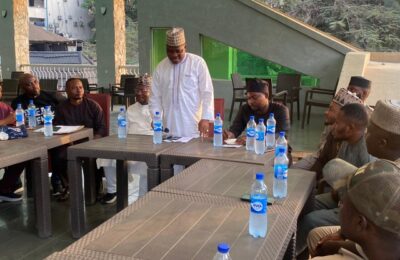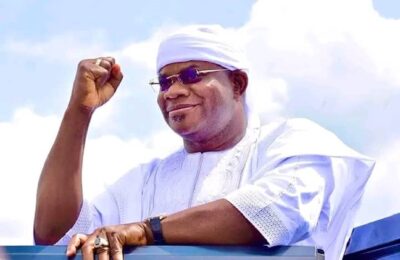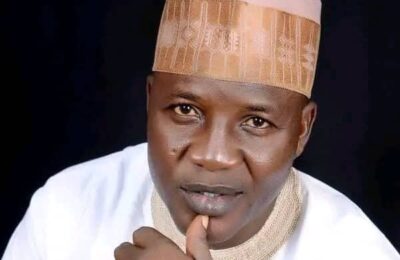They never mounted global stages, yet their invocations dislodged empires. They bore no earthly crowns, yet they brokered spiritual constitutions that saved multitudes. While others advanced with battalions and artillery, these ones warred with broken syllables and divine travail. The greatest intercessors that ever walked this mortal plane were not lauded personalities, but sacred wombs — hidden chambers in the spirit that gestated revivals, ushered in divine interventions, and shielded civilizations from catastrophic judgments.
They were not merely prayer warriors; they were spiritual emissaries — conduits of divine will — whose mutterings on the floorboards of obscurity thundered louder in heaven than royal decrees on earth. Their petitions were not rehearsed oratory but legal submissions before the Ancient of Days. They didn’t chase relevance; they hosted Presence. Their currency wasn’t visibility but intimacy. As the late Prophet TB Joshua wisely echoed, “We are to pray more and say less. A man of prayer sees clearer than a man of words.”
In the chronicles of ancient Israel, when divine wrath was kindled by rebellion, it was not the eloquence of kings that appeased Jehovah but the sacrificial intercession of Moses. “Blot me out of your book,” he dared to plead, positioning himself between divine fury and national annihilation (Exodus 32:32). That was no political maneuver; that was priestly mediation. Moses was not merely a prophet — he was a gestational force, carrying the embryonic future of Israel until it could survive its wilderness infancy. When God declared He sought a man to stand in the breach (Ezekiel 22:30), He wasn’t seeking a pulpiteer — He was scanning the earth for a womb.
The intercessor is a labourer in the dark — a spiritual midwife pushing a generation into destiny. Prophetess Anna, widowed and aged, tarried in the temple for decades. Her unseen fasting and supplications became the prophetic alarm clock that welcomed the Messiah. Her prayers didn’t fill synagogues; they filled the fullness of time. And when Mary carried Christ biologically, Anna had already carried Him prophetically.
History whispers through the veil: America’s flames of revival, though attributed to the oratory genius of Charles Finney, were first lit in the soul furnace of Father Nash — a forgotten man who cloistered himself in prayer weeks before Finney ever arrived. His groans, soaked carpets, and unrelenting travail set the atmosphere ablaze long before a single sermon was preached. In Nigeria, while Archbishop Benson Idahosa became the face of Pentecostal explosion, it was the generation of nameless, faceless intercessors — elderly market women, village prayer bands, blind prophets in hidden huts and mountains — who saturated the land with holy incense. Apostle Ayo Babalola didn’t simply organize crusades; he incubated movements in the womb of prayer. Bishop Oyedepo once declared, “No destiny shines by accident; behind every star is a scar.” The deepest scars in this faith are not from persecution, but from private groanings that birth public breakthroughs.
Intercession is not gender-bound; it is spirit-conceived. Heaven is not looking for testosterone or estrogen but availability. Elijah, though wrapped in masculinity, travailed until the heavens obeyed (James 5:17). Paul, a master theologian, confessed he was again in labour — not academically but spiritually — until Christ was formed in his disciples (Galatians 4:19). Intercession makes men womb-carriers. It recalibrates your inner architecture until compassion eclipses ego, and divine burdens become more compelling than personal ambition. Jesus Christ Himself modeled the zenith of intercession: nailed to a tree, hemorrhaging life, He whispered, “Father, forgive them, for they know not what they do.” That was no sentimental plea — it was an eternal act of litigation on behalf of humanity.
The decay of societies, the collapse of moral order, the rise of unthinkable violence — all are symptomatic of a deeper spiritual miscarriage. The wombs are dry. The watchmen slumber. The intercessors have traded incense for influence. We now have churches filled with protocol but lacking presence. Platforms brimming with theology but starved of travail. As Leonard Ravenhill rebuked, “The church has many organizers, but few agonizers.” We have replaced groanings with graphics. Sacred altars have become selfie stations. But spiritual warfare cannot be fought with aesthetics. Demons don’t bow to branding. Nations won’t be saved by noise.
Where are the midnight labourers who bleed in the Spirit until policies shift? Where are the cloaked wombs of Africa that can convert political unrest into prophetic rebirth? Who will intercede until democracy bows to divinity? Who will wrestle like Jacob until crooked leaders limp with divine encounter? Intercessors are not trendsetters — they are thermostats. They don’t comment on atmospheres; they shift them.
The intercessor functions as a nation’s conscience, not its critic. Daniel, when exiled in Babylon, didn’t tweet rage; he entered the upper room and turned history with kneeling theology. Esther, cloaked in regality, put on sackcloth within her soul and redefined destiny with a three-day fast. This is not just prayer. This is jurisprudence. It is the art of spiritual legislation, where earthly events are rewritten in heaven’s courtroom by a man or woman who dares to stay long enough in the divine council.
Even now, in overlooked villages, broken prisons, dusty school rooms, and hospital beds, there are men and women whose only contribution to national history will be their invisible groanings. Heaven sees them as dignitaries. They will never trend, but they will outlive trends. Their names may never decorate plaques, but angels know their voice prints. As Apostle Arome Osayi observed, “The womb of the Spirit is prayer. Nothing is born in the kingdom without travail.”
Revisit the story of Hannah. She was ridiculed by Peninnah, misjudged by Eli, but recognized by God. She didn’t birth just a child — she birthed a prophet who restructured Israel’s priesthood. Samuel was heaven’s response to a woman’s anguish. And when she prayed so fervently that words failed her, God translated her tears into transformation. Eli thought she was drunk, but heaven saw gestation.
Today, God is still scanning the earth — not for influencers, not for theologians, but for wombs. Vessels. Vats of divine burden. People willing to die on their knees so a generation can live standing. The womb of intercessors is the unseen engine behind every awakening, every revolution, every reformation. Until they return to the altar, the turbulence in nations will persist. But if they return — if even a remnant awakens — Nigeria will rise again. Africa will prophesy again. The world will see another Pentecost, another Wales, another Azusa.
Because intercessors don’t just pray. They birth.
– Inah Boniface Ocholi writes from Ayah – Igalamela/Odolu LGA, Kogi state.
08152094428 (SMS Only)




